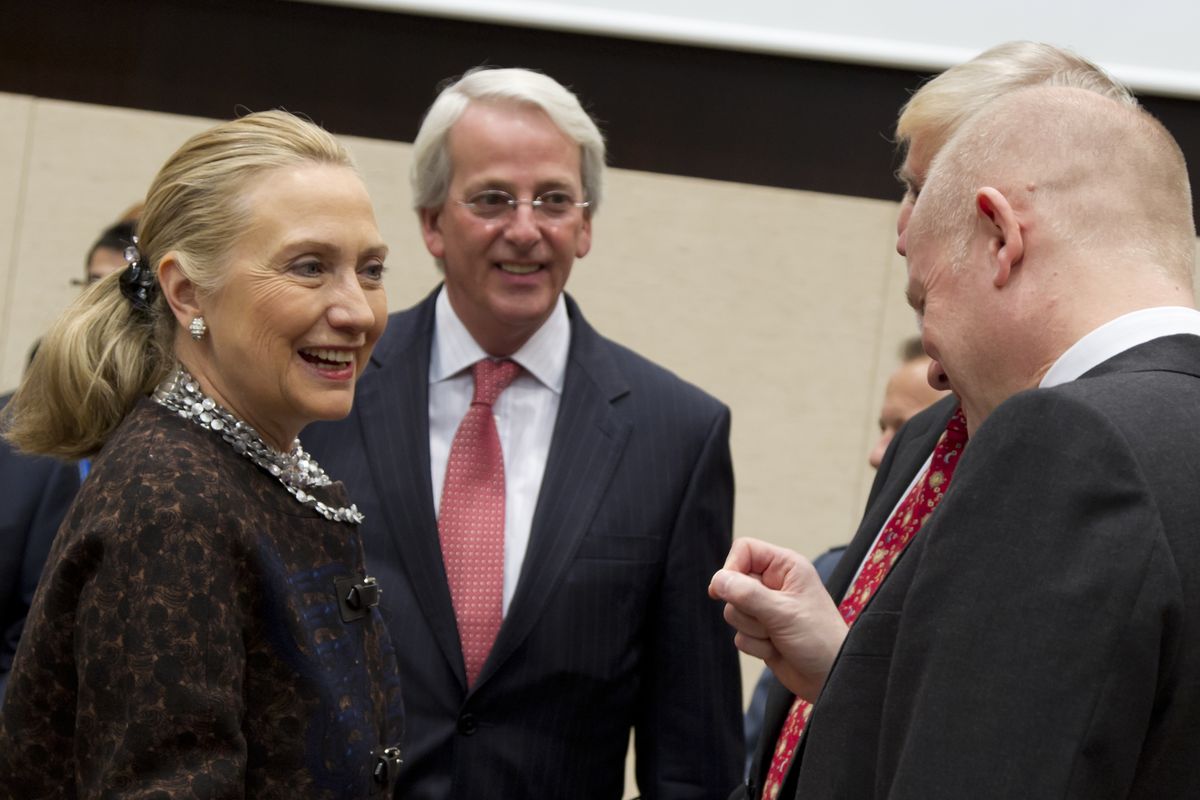US tells allies to make good on Afghan pledges

BRUSSELS (AP) — The Obama administration pressed its European allies on Wednesday to follow through on their pledges to Afghanistan’s security after most international troops withdraw in 2014, fearful of being left with the check in an era of austerity budgets and defense cutbacks.
Donors pledged $4.1 billion a year to support Afghan forces from 2015 to 2017 at a May summit in Chicago — firming up a key plank of the U.S. strategy to leave behind a secure Afghanistan after battling insurgents for more than a decade. But many governments have yet to come through with the cash.
Speaking at NATO headquarters, U.S. Secretary of State Hillary Rodham Clinton told allies it is “crucial for every nation to follow through on their commitments, and for those who haven’t yet committed any funding to do so.” To make her point, she invoked Afghanistan’s troubled history of chasing out the Soviet Union in the 1980s only to descend into civil war and the oppression of an extremist Taliban government.
“All of us here have an interest in ensuring this region does not once again become a safe haven for international terrorists,” Clinton said. “We cannot afford to repeat the mistakes of 1989 and just disengage. That’s why we made an enduring commitment, and it’s why we have to follow through on it — today, tomorrow and for years to come.”
For the United States, supporting Afghanistan’s army of about 230,000 men is also an issue of economics. Hoping to map the way out of an unpopular war, the U.S. and NATO brought in dozens of other countries earlier this year to build as broad a funding base as possible for Afghanistan’s still-developing army. The argument was straightforward: Even $4 billion a year to prop up the Afghan military comes out far cheaper than maintaining a foreign army in the country, and a lot easier for war-weary publics to swallow.
Together, the U.S. and governments outside the fighting force promised to come up with the bulk of the money. But having repeatedly guaranteed the Western-backed government of President Hamid Karzai that his country won’t be abandoned, Washington doesn’t want to be left covering even more because of unfulfilled pledges.
NATO Secretary-General Anders Fogh Rasmussen said NATO and other coalition partners agreed Wednesday to develop a mechanism so funds are managed accountably and transparently. Widespread corruption in Afghanistan has prompted reservations by several governments.
Afghan Foreign Ministry spokesman Janan Mosazai said his government was aware of the fiscal constraints cash-strapped European nations are facing, but he expressed confidence in all pledges being met.
The money “is an investment not only in the security of Afghanistan, but also in the security of the region and the wider world,” Mosazai told reporters at NATO. “So in our view, that is an efficient, cost-effective investment in long-term security.”